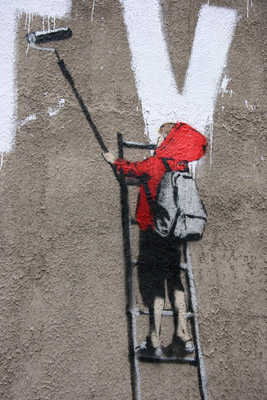Consumer culture lies deep into history and the rise of advertisements that drive this movement. Since the mid-nineteenth century, the American business market changed in dramatic ways. From a steady rise in industry and formulation of a market economy, banking systems and wages, it created what is now known as a capitalist society. Around the 1840s, the concept of modern advertising emerged in American society, which predominately targeted women as the consumer good influences in the household.
The 1880s saw advertisements focusing on the “wants” and “needs” of the growing consumer population. By purchasing this product (i.e a stove), it would reduce the toil and labour of the kitchen providing more time to nurture a family. Through creating wants and needs to consumers, advertisements were instrumental in paving the way for successful capitalism in America, which is driven by large corporations advertising their products in all media forms.
Across the world in Australia during the 1800s , advertisements played the same role – to convince consumers to buy goods that will make their lives easier. These ads however painted a lifestyle of the “Australian life” surrounded by beaches, sun and playing outdoor activities, providing a more relaxed and ‘realistic’ variation of life.
Our histories show that ads capture aspects of our lives and how they can help make life easier. They drive us to think a certain way and purchase certain items that we believe we need and want. Consumerism encouraged by advertisements create an illusion of demand that likewise created an overabundance of supply in cars and similar products. And after decades of being told what to buy, culture jams act to reclaim the public space. We are what make society and know our wants and needs, and we have the power to speak/act back.
Take for example costly water bottles. You don’t really need them (spending up to $3 on 600ml is outrageous!) when tap water is perfectly fine [are somewhat free] to drink. Marketers draw us with words “natural”, “springs”, “pure” and “crystal”, making the water – a natural resource – appear almost magical and special. It changes how we think, and influences our purchase decisions even if we know what’s logical and the best for us.



This post makes me think of the long abandoned Los Angeles subway system. Buried and forget beneath the city is a network of tunnels, platforms, and tracks left behind in the wake of progress. At one point, the LA mayor, an automobile barren himself, legislated the sealing up and paving over of the transit line in favour of more cars. Creative marketing then supported this political move by painting such vehicles as the age of the future. In turn this lead to people having the ability to live further and further from the city centre, which begot more road, more cars, and more people. Consequently today LA has one of the worst air pollution concerns in the U.S. and is now labouring to literally uncover that lost transportation history and push commuters out of their four-wheel comfort zones and into state sponsored trolleys and trains.
It is interesting to see how consumer mindsets have been changed over time. What are the alternatives to the interactive two-way materialist model we have now, where company’s advertise goods purely for profit and market share, and we have the ability to give our opinion back?
We have had propaganda-backed advertising campaigns, urging people to buy certain products to support the war, country, cause etc. Is it possible to have a socially-concious, ethics backed consumer culture, or is that just another form of propaganda?
Re: water bottles,I actually support the sale of water bottles as it is a form of consumer choice and individual choice, which I believe in. It is also a safety issue. What happens if you are caught out in the sun away from home, or if you are on a road trip with your family? Bottled water can stop you from dehydrating. If you campaign to get rid of bottled water, then replace it with freely available public water stations or make restaurants and businesses compelled to offer a free water source to consumers.
Grish
Bryan; it’s interesting to see how much our societies norms and values change. All to look back and realise “how did we get this way?”, when records are lost through time and a just a mere memory of a place that once was.
Grish; even if we have the opportunity to speak back, it doesn’t necessarily mean we will be heard by that company in question. It’s kind of disheartening, that even though with advancements and technology we have all the communication tools to say what we want, ultimately we are still exposed to the messages and ways company’s advertise and want us to think. The thought of a socially-conscious public means company’s lose their power (I can’t ever see this happening). In a capitalist society, we’ll only see their agenda, but with the surge of culture jammers, publics do become more aware of issues and somewhat more conscious about what they are consuming.
And Grish with water bottles – who is/are the ones responsible for making disposable bottled water a consumer choice? They created a NEED and WANT to own this, and think people really must purchase them. In earlier societies did water bottles exist? No. Did people still survive and drink water? Yes. In present day; where people have access to clean water this is where the need of recycling long lasting water bottles comes into play. I for one always top up one singular water bottle with water from home. I don’t see a point in paying for something when I can get it at home for free.